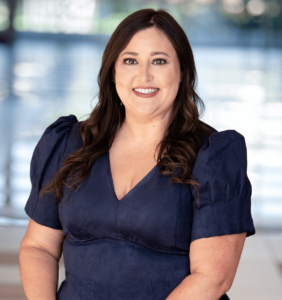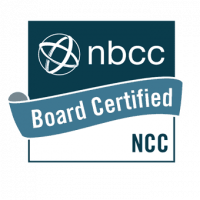Is it ROCD or Just the Wrong Relationship?
Is it ROCD or just the wrong relationship? This is a common question that plagues many individuals who find themselves doubting their romantic partnerships. Understanding the difference between Relationship Obsessive-Compulsive Disorder (ROCD) and simply being in an incompatible relationship is crucial for finding the answers and seeking the appropriate help.
What Is ROCD?
ROCD is characterized by:
Obsessions: These are unwanted, distressing thoughts that keep popping into your mind. In the case of ROCD, these thoughts often revolve around doubts about your partner’s love, compatibility, or the future of the relationship. These thoughts are often irrational but persistent.
Compulsions: Compulsions are repetitive behaviors or mental acts performed to reduce the anxiety caused by obsessions. In ROCD, compulsions may include seeking constant reassurance from your partner, analyzing the relationship excessively, or comparing your partner to others.
How to Recognize ROCD
Recognizing ROCD involves identifying the obsessive thoughts and compulsive behaviors that are specific to this disorder. Common obsessions in ROCD include:
Constant Doubts: A person with ROCD may constantly question whether they truly love their partner or if their partner loves them.
Comparisons: They may compare their partner to past relationships or idealized versions of a partner, leading to dissatisfaction.
Fear of Commitment: ROCD can involve an irrational fear of commitment, leading to avoidance of long-term relationships.
Intrusive Thoughts: Disturbing and unwanted thoughts about infidelity or harm coming to the relationship.
Excessive Reassurance-Seeking: They may seek reassurance from friends, family, or their partner to alleviate their doubts temporarily.
Common compulsions in ROCD include:
Checking Behaviors: Constantly checking social media or texts to see if your partner is interacting with others.
Mental Review: Repeatedly reviewing your relationship history or conversations with your partner in search of answers.
Avoidance: Avoiding situations that trigger doubts, such as avoiding spending time with your partner or avoiding commitment.
Compulsive Confessions: Feeling compelled to confess imaginary wrongdoings or doubts to your partner.
Match with the leading Online ROCD Therapist located in Frisco, TX

MS, LPCC, LPC, NCC
Therapist | Licensed Professional Clinical Counselor | Nationally Certified Counselor
During my extensive tenure as a mental health therapist, I have honed my expertise in catering to the distinct requirements of ROCD. My therapeutic approach places a premium on fostering trust, building resilience, and nurturing emotional insight.
Reach out today, and let’s set the stage for a brighter future for your relationship.
How to know: Is it ROCD or Just the Wrong Relationship?
ROCD is characterized by intrusive thoughts and compulsions that are out of proportion to the actual situation and may be rooted in a fear of intimacy, commitment, or past trauma. In contrast, a healthy relationship should meet both partners’ needs and make them feel loved, respected, and supported. If you are constantly feeling anxious or insecure, it is important to consider whether the relationship is truly right for you.
Type of Worries Associated With ROCD:
- ROCD worries are often irrational and related to the relationship itself, whereas concerns about a wrong relationship might be based on tangible issues like lack of shared interests, values, or incompatible goals.
Length of Time Spent on Obsessions:
- ROCD obsessions and compulsions are persistent and ongoing, while concerns about being in the wrong relationship may ebb and flow depending on circumstances.
Impact on Daily Life:
- ROCD can significantly disrupt daily functioning, causing distress and anxiety. In contrast, doubts about a wrong relationship may not affect your overall mental well-being to the same extent.
Incompatibility vs. ROCD Symptoms:
- Assess whether the doubts stem from genuine incompatibility or if they align with the obsessive patterns of ROCD.
What are the Treatments for ROCD?
ROCD is a treatable condition. The most effective treatments are ERP and CBT, which help people confront their obsessive thoughts and compulsions, challenge irrational beliefs, and develop healthier cognitive coping strategies. Medications may also be helpful to manage anxiety and depression.
Exposure Response Therapy (ERP)
ERP helps individuals confront their obsessive thoughts and resist the urge to perform compulsive behaviors. In ROCD, this might involve facing relationship-related fears and uncertainties.
Medications Used to Treat ROCD
While medication can be used to manage anxiety and depression associated with ROCD, it is typically not the first-line treatment and is often used in conjunction with therapy.
Cognitive Behavioral Therapy (CBT) for ROCD
CBT focuses on changing thought patterns and behaviors related to ROCD. It helps individuals challenge irrational beliefs and develop healthier coping strategies.
Acceptance and Commitment Therapy (ACT)
ACT helps people accept their intrusive thoughts and compulsions without judgment, and commit to living their lives in accordance with their values.
Mindfulness-Based Therapy (MBT)
MBT helps people develop mindfulness skills, such as paying attention to the present moment without judgment. This can help people to reduce the distress associated with their intrusive thoughts and compulsions.
10 Tips for Coping with ROCD
Relationship Obsessive-Compulsive Disorder (ROCD) can be a difficult condition to deal with, but there are ways to cope. Developing healthy coping mechanisms can help you to manage your anxiety, reduce your compulsions, and improve your overall well-being.
Some helpful coping mechanisms include talking to a therapist, learning about ROCD, developing a support system, practicing mindfulness, and engaging in healthy activities. If you are struggling with ROCD, it is important to reach out for help and to develop healthy coping mechanisms.
Here are 10 helpful tips for coping with ROCD:
- Keep in the moment: Mindfulness and meditation can help you focus on the present moment and reduce the impact of obsessive thoughts. Try practicing mindfulness exercises for a few minutes each day, such as deep breathing or meditation.
- Talk it out: Open and honest communication with your partner is essential for coping with ROCD. Talk to your partner about your thoughts and feelings, and be willing to listen to their perspective.
- Say no to reassurance: One of the most common compulsive behaviors in ROCD is reassurance-seeking. While it may feel helpful in the moment, it can actually reinforce the obsessive thoughts. Try to limit how often you ask for reassurance from your partner or others.
- Find your support system: Having a support system can be invaluable when coping with ROCD. Consider joining a support group or seeking therapy with a mental health professional experienced in treating OCD.
- Take care of yourself: Prioritizing self-care can help reduce stress and anxiety, which can worsen ROCD symptoms. Make time for activities that you enjoy and that help you relax, such as exercise, spending time with loved ones, or reading.
- Challenge your thoughts: ROCD thoughts are often obsessive and irrational. Try to challenge these thoughts by asking yourself if there is any evidence to support them.
- Embrace uncertainty: ROCD is often fueled by a fear of uncertainty. It is important to accept that uncertainty is a normal part of life and that you cannot always have all the answers.
- Focus on the present: ROCD thoughts often focus on the past or the future. Try to focus on the present moment and appreciate the good things in your relationship.
- Be patient: Recovery from ROCD takes time and effort. Don’t get discouraged if you don’t see results immediately. Just keep practicing the coping skills you have learned and be patient with yourself.
- Celebrate your successes: As you recover from ROCD, it is important to celebrate your successes along the way. This could be anything from having a good day without intrusive thoughts to having a difficult conversation with your partner in a healthy way
When to Seek Professional Support
When ROCD symptoms significantly disrupt your daily life, relying solely on an online therapist directory or therapy platform may not provide the depth of care needed. At NorthStar Counseling & Therapy, our expert team specializes in treating ROCD with tailored, evidence-based therapies. We offer personalized support, in-depth assessments, and targeted treatments to help you overcome intrusive thoughts and compulsions. For a comprehensive approach to your well-being, trust NorthStar Counseling & Therapy, where your journey to recovery is our top priority.
In Our Experience
As a female therapist, I have seen firsthand the impact that ROCD can have on relationships. It can be a very isolating and confusing experience, and it can be difficult to know where to turn for help.
I want to reassure you that ROCD is a treatable condition. With the right therapeutic approach and support, you can learn to manage your obsessions and compulsions, and build a healthier and more fulfilling relationship.
Seeking professional help is a courageous step towards finding clarity and peace in your romantic life. A therapist can provide you with a safe and supportive space to explore your thoughts and feelings, and develop coping strategies to manage your ROCD.
Remember, you are not alone in this. There are many people who understand what you are going through, and there is help available. Take the first step towards recovery today.
- The more open and honest you are with your therapist about your experiences, the better they can help you.
- Therapy can be challenging at times, but trusting in the process is worth it in the end.
- Recovery from ROCD takes time and effort, so be patient with yourself. Don’t get discouraged if you don’t see results immediately.
- As you progress in therapy, take the time to celebrate your successes, no matter how small they may seem. I believe in you. You can overcome ROCD and build a happy and healthy relationship.
Helpful Tips from a ROCD Therapist
- The more open and honest you are with your therapist about your experiences, the better they can help you.
- Therapy can be challenging at times, but trusting in the process is worth it in the end.
- Recovery from ROCD takes time and effort, so be patient with yourself. Don’t get discouraged if you don’t see results immediately.
- As you progress in therapy, take the time to celebrate your successes, no matter how small they may seem. I believe in you. You can overcome ROCD and build a happy and healthy relationship.
Everyone Deserves to be Happy
Discover a Brighter Tomorrow with NorthStar Counseling & Therapy. Our expert team provides compassionate and effective counseling services to guide you towards a happier, healthier life. Trust NorthStar for personalized counseling and therapy care and a brighter future. Contact us today!

Owner, Clinician, Wife & Mom
Share:
For more information and support on ROCD, consider exploring these resources:
International OCD Foundation. (n.d.). A comprehensive source of information on OCD, including ROCD.
Anxiety and Depression Association of America (ADAA). (n.d.). Offers resources on anxiety disorders, including ROCD.
PsychCentral. (n.d.). Relationship OCD: Provides articles and insights on ROCD.







